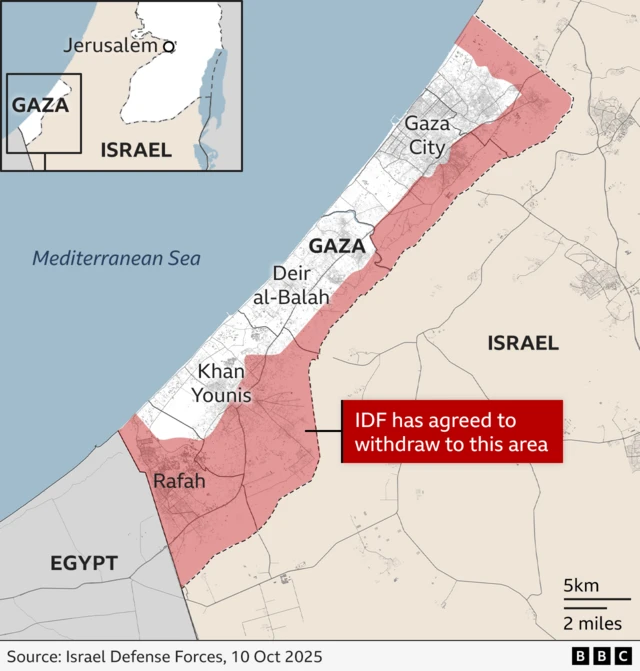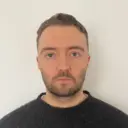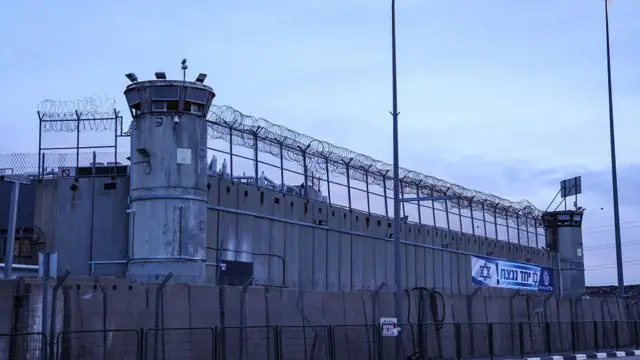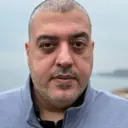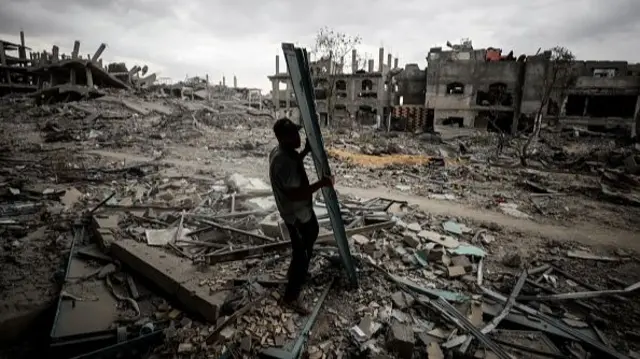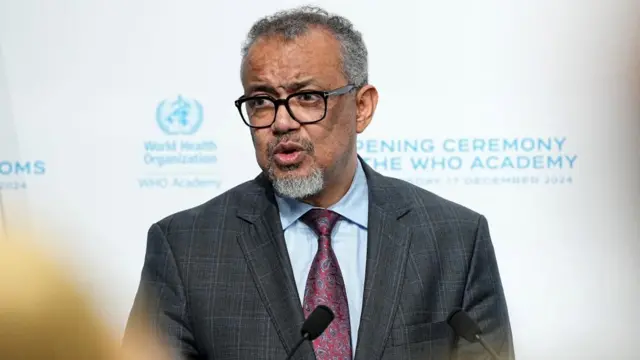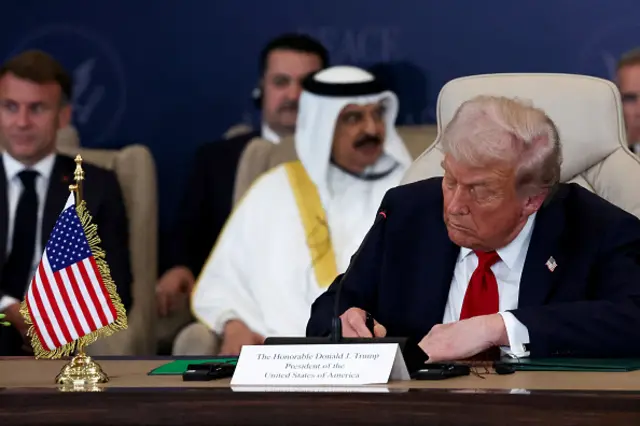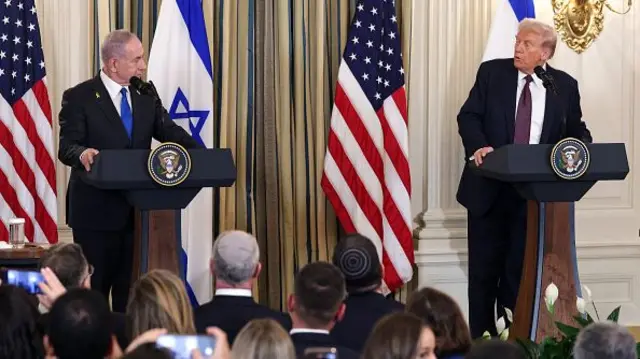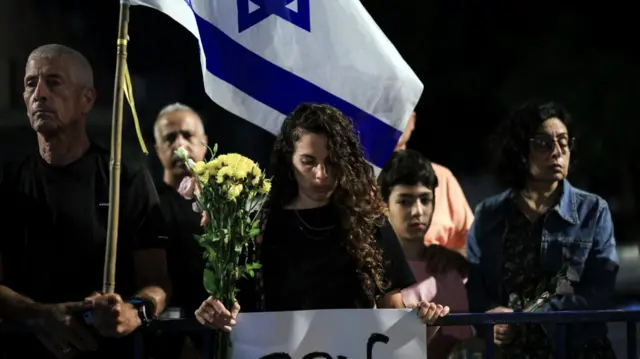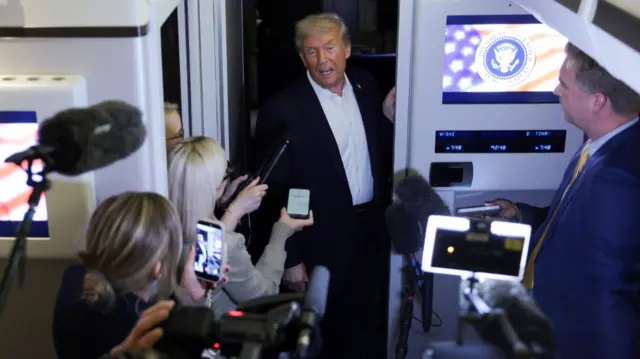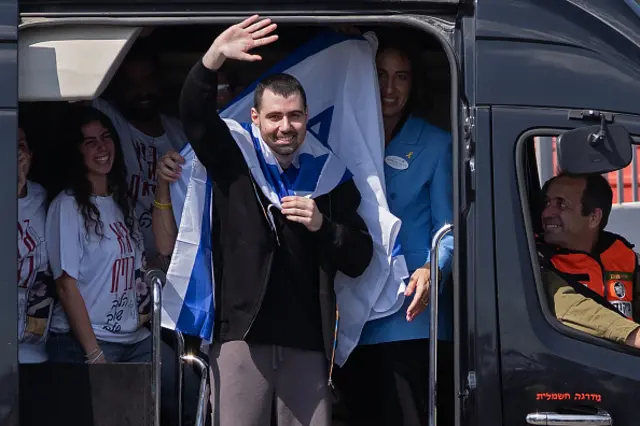Seven Palestinians killed by Israeli forces in Gaza, Palestinian Civil Defence sayspublished at 12:18 BST 14 OctoberBreaking
Palestinian Civil Defence has told the BBC that seven people have been killed by Israeli forces today in two separate incidents - in eastern Gaza and to the east of Khan Younis.
An Israeli drone strike in Gaza's eastern Shejaiya neighbourhood has killed five people, Wafa news agency says - an update from the four killed which we reported earlier.
It quotes a medical source saying five people were killed "when Israeli drones fired at residents inspecting their homes". The Israeli military says it fired after people crossed the yellow line, where its troops have withdrawn to under Trump's ceasefire plan.
